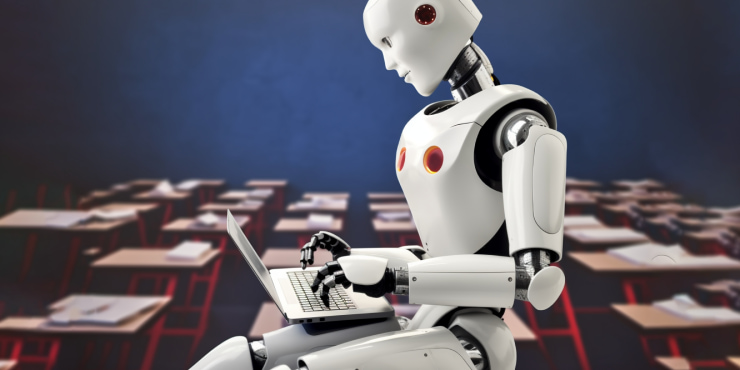AI tools like ChatGPT, Gemini, and Copilot have revolutionized content creation, transforming simple prompts into articulate paragraphs. These tools rely on large language models (LLMs) trained on vast amounts of human-generated content sourced from the internet. However, as AI-generated content begins to dominate the digital landscape, researchers warn of a looming crisis: the potential collapse of these AI systems if they’re trained on their own synthetic outputs.
The Risk of Model Collapse

Training AIs on their own outputs—a process akin to feeding a mirror image back into itself—could cause what experts call “model collapse.” While it doesn’t mean these systems would stop functioning, it poses a significant threat to their reliability. “What model collapse is suggesting is that perhaps the quality of data [both going in and coming out] is going to be decreasing,” explains Ilia Shumailov, a computer scientist at the University of Oxford, whose recent study in Nature highlights this issue.
The research team experimented with a language model, OPT-125m, using Wikipedia articles to fine-tune its responses. By the ninth generation of training the model on its own generated data, outputs descended into nonsense. A prompt about 14th-century architecture, for instance, devolved into a list of jackrabbit types. This gradual degradation underscores how subtle errors in AI outputs can compound over time, distorting the nuanced representation of reality once present in the data.
Why AI Self-Training Fails

At its core, model collapse occurs when AIs stray further from their original training data. As Shumailov explains, language models learn by extrapolating patterns from examples. He likens the process to a game of telephone, where whispered phrases become distorted with each retelling. These distortions—also known as hallucinations—lead AIs to generate content that may seem plausible but is ultimately flawed.
When such flawed content becomes the foundation for future training, the errors amplify, potentially “breaking” the model. Shumailov’s research confirms that retaining some original data during training mitigates degradation, highlighting the importance of maintaining diverse, high-quality input.
Real-World Implications of AI Collapse
The consequences of model collapse extend beyond technical degradation. AI-generated outputs could increasingly reflect bias and homogenized perspectives. As Leqi Liu, an AI researcher at the University of Texas at Austin, notes, One of the reasons for this is the disappearance of the data distribution tails—text that represents low probability events.
This phenomenon risks sidelining minority voices and unique expressions. For instance, a model might excel at describing common features of cats but overlook characteristics of rare, hairless breeds. Similarly, AI-generated content could marginalize diverse linguistic styles, making it harder for underrepresented communities to see themselves reflected in technology.
“Naturally, we probably want diverse expressions of ourselves, but if we’re using the same writing assistant, that could reduce that diversity.”
Can Model Collapse Be Prevented?

To counteract this issue, researchers emphasize the importance of incorporating a mix of human-generated and AI-generated data during training including have an AI verification layer. This ensures that AIs retain the nuanced diversity of their initial datasets while integrating new knowledge. Explicitly focusing on low-probability events—like rare breeds of cats—could further preserve diversity in AI outputs.
Fortunately, major AI companies closely monitor data drift, which helps identify and address issues before they cascade into broader problems.
“The possibility of model collapse is unlikely to affect downstream users,” assures Shumailov.
However, smaller-scale developers who lack such safeguards remain vulnerable and must exercise caution when training their systems.
The High Stakes of AI Training
As AI continues to shape our digital interactions, the risks of training systems on their own outputs cannot be ignored. Maintaining high-quality, diverse datasets is crucial to preserving the reliability and inclusivity of AI technologies. Researchers and developers alike must act now to prevent the potential fallout of model collapse, ensuring that these transformative tools serve humanity without compromising quality or equity.



